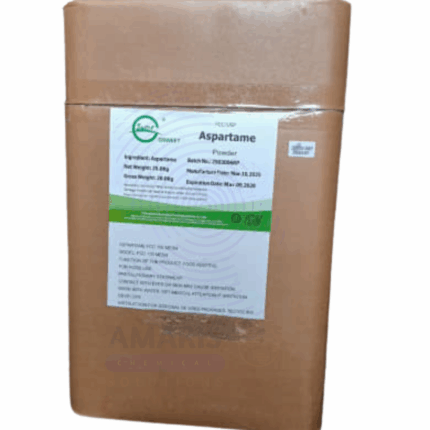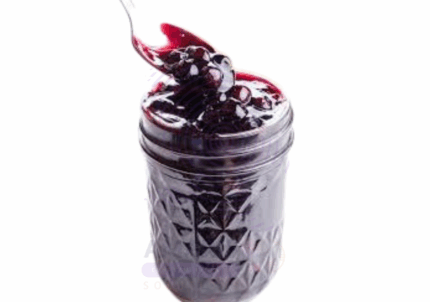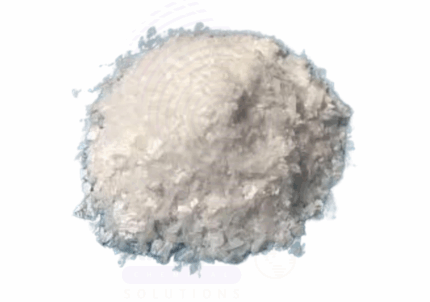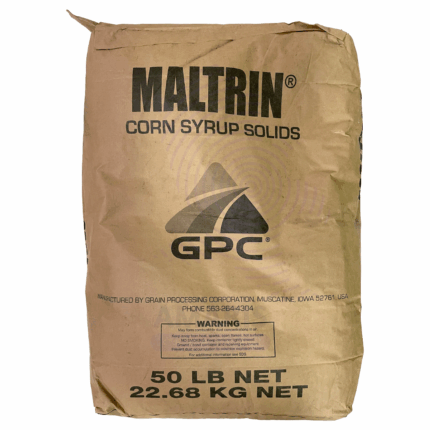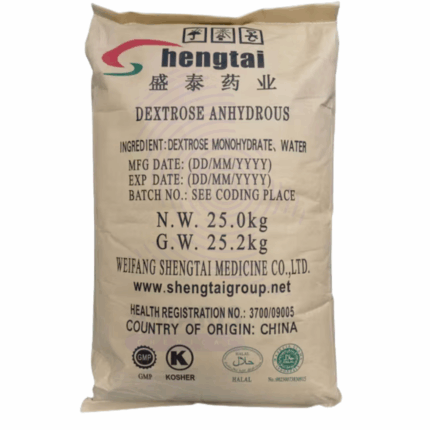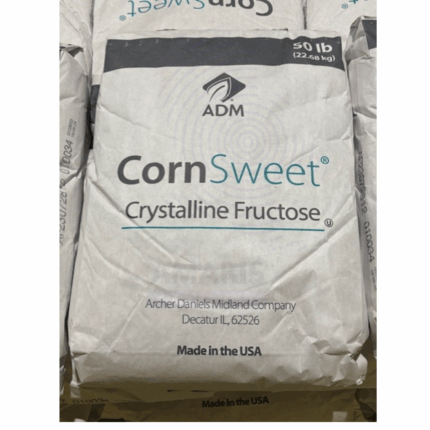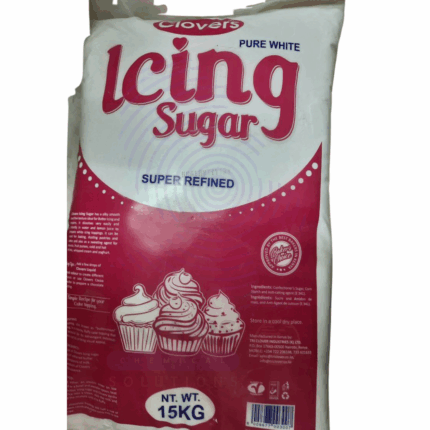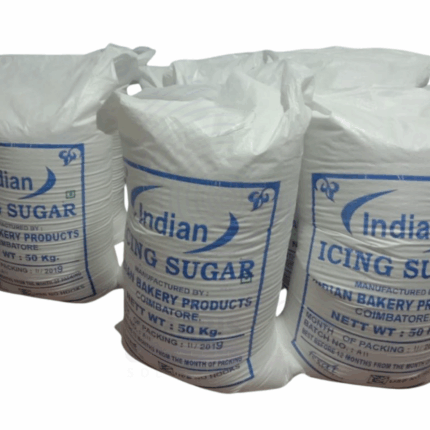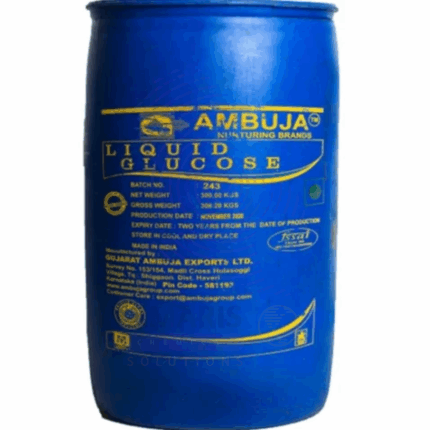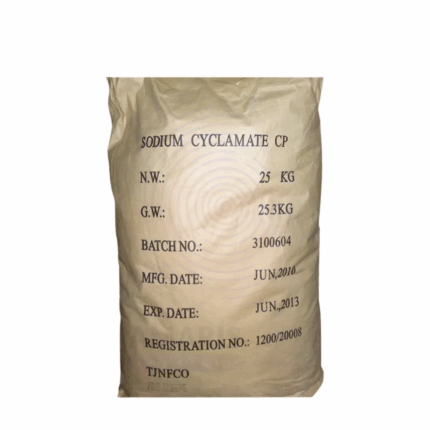
Some, like high-fructose corn syrup (HFCS), are processed from natural sources but linked to health concerns.
Sweeteners help reduce sugar intake, manage diabetes, and lower calorie content in products like diet sodas, sugar-free snacks, and baked goods. However, debates exist over their long-term health effects, including metabolic impacts and gut health.
Aspartame
Aspartame is a low-calorie artificial sweetener approximately 200 times sweeter than sucrose (table sugar). It is a methyl ester of the dipeptide composed of aspartic acid and phenylalanine. Due to its intense sweetness and low-calorie nature, aspartame is widely used as a sugar substitute in various food and beverage products. It is popular among consumers seeking to reduce caloric intake, especially diabetics and those on weight management programs. Aspartame breaks down at high temperatures, limiting its use in certain cooking or baking applications. It is approved by numerous global food safety authorities, including the FDA and EFSA.
Blueberry Toppings
Blueberry Toppings are sweet, fruit-based condiment preparations made primarily from blueberries, sugar, and thickening agents. They are characterized by a vibrant blue-purple color, fruity aroma, and a sweet-tart flavor profile. Typically semi-viscous with chunks or pureed pieces of blueberry, these toppings are used as finishing ingredients in desserts, breakfast foods, and beverages. Blueberry toppings may be prepared as preserves, syrups, or glazes and often contain natural flavors and preservatives to enhance shelf life and sensory appeal.
Calcium Saccharin
Calcium Saccharin is the calcium salt form of saccharin, a synthetic sweetener. It appears as a white to off-white crystalline powder with a sweet taste that is several hundred times sweeter than sucrose (table sugar). Calcium Saccharin is water-soluble and widely used as a non-nutritive sweetener in food and beverage products, pharmaceuticals, and oral care formulations. Due to its stability under heat and acidic conditions, it is ideal for baked goods and beverages. It serves as a sugar substitute for diabetic and calorie-restricted diets and is often used in combination with other sweeteners to improve taste profiles.
Corn Syrup
Corn Syrup is a viscous, sweet liquid derived from the enzymatic hydrolysis of corn starch. It consists primarily of glucose and maltose along with higher saccharides, providing sweetness, viscosity, and moisture retention in food formulations. Corn Syrup is widely used in food and beverage industries as a sweetener, humectant, and texture enhancer. Its ability to prevent crystallization and retain moisture makes it essential in confectionery, baking, and processed foods. Industrial grades of corn syrup are also used in pharmaceuticals and other manufacturing applications where its binding and stabilizing properties are valued.
Dextrose Anhydrous BP Injectable
Dextrose Anhydrous BP Injectable is a sterile, highly purified crystalline form of glucose that serves as a critical energy source in intravenous therapy. It is widely used in parenteral nutrition, rehydration, and hypoglycemia management. The anhydrous form contains no water, allowing precise control of concentration in injectable solutions. Meeting British Pharmacopoeia (BP) standards, it ensures pharmaceutical-grade purity and sterility, suitable for direct injection or as a component in compounded IV fluids. It provides readily available carbohydrates metabolized to supply energy, regulate osmolarity, and maintain fluid-electrolyte balance in clinical care.
Fructose
Fructose, also known as fruit sugar, is a naturally occurring monosaccharide found in many plants, fruits, honey, and root vegetables. It is a simple sugar with a sweet taste and is one of the three dietary monosaccharides, alongside glucose and galactose. Fructose appears as a white crystalline powder, highly soluble in water, and is commonly used as a sweetener in food and beverage industries due to its high relative sweetness. It plays important roles in metabolism and is used extensively in the production of high-fructose corn syrup (HFCS) and other sweetening agents.
Icing Sugar
Icing Sugar, also known as powdered sugar or confectioners’ sugar, is a finely ground sugar with a powdery consistency. It is typically made by milling granulated sugar into a fine powder and blending it with a small amount of anti-caking agent (usually cornstarch or tricalcium phosphate) to prevent clumping. Icing Sugar is white, odorless, and has a sweet taste. It is widely used in baking, confectionery, and culinary applications to provide sweetness, texture, and decorative finishes.
Liquid Glucose
Liquid Glucose is a viscous, clear to pale amber syrup primarily composed of glucose and other saccharides. It is produced by the enzymatic hydrolysis of starch derived from corn, wheat, or potatoes. Known for its high sweetness and excellent moisture-retention properties, Liquid Glucose is widely used in the food and beverage industry to enhance texture, sweetness, and shelf life. It also acts as a humectant and crystallization inhibitor, improving the quality and consistency of various processed foods.
Maltitol Powder
Maltitol Powder is a white, crystalline polyol (sugar alcohol) derived from hydrogenated maltose obtained from starch sources like corn or wheat. It is a low-calorie, high-sweetness sugar substitute with about 90% the sweetness of sucrose but significantly fewer calories (approximately 2.1 kcal/g vs. 4 kcal/g for sugar). It has excellent solubility, low hygroscopicity, and provides a clean, sweet taste without an aftertaste. Maltitol Powder is widely used in food, pharmaceutical, and nutraceutical applications for its sugar-like properties, making it suitable for diabetic, low-carb, and dental-friendly formulations.
Sodium Cyclamate
Sodium Cyclamate 80 Mesh is a white, crystalline powder used as an artificial sweetener. It is approximately 30 to 50 times sweeter than sucrose (table sugar) and provides a low-calorie sugar substitute. Due to its high sweetness and stability under heat and acidic conditions, it is commonly used in food and beverage formulations, pharmaceuticals, and personal care products as a sugar alternative.
Sodium Saccharin
Sodium Saccharin is a white crystalline powder or granule with the chemical formula C₇H₄NNaO₃S·2H₂O. It is the sodium salt of saccharin, an artificial sweetener approximately 300–500 times sweeter than sucrose. This non-nutritive, zero-calorie sweetener is widely used in food, beverage, pharmaceutical, and personal care industries. Packaged in 25kg containers, it is highly soluble in water, heat-stable, and has excellent shelf life, making it a cost-effective and versatile sweetening agent.
Sorbitol
Sorbitol is a sugar alcohol with the chemical formula C₆H₁₄O₆, appearing as a white, crystalline, hygroscopic powder or syrup. It is widely used as a sweetener, humectant, and texturizing agent in food, pharmaceutical, and cosmetic industries. This 25kg packaged product offers high purity sorbitol, soluble in water with a mildly sweet taste and low caloric value, making it a popular sugar substitute and stabilizer.
Stevia
Stevia 25kg refers to a bulk packaging format of high-purity stevia extract, a natural, zero-calorie sweetener derived from the leaves of Stevia rebaudiana. It contains steviol glycosides—primarily Rebaudioside A and Stevioside—which are responsible for its intense sweetness. Stevia is widely used as a sugar substitute in food and beverage formulations, offering a healthier alternative for calorie-conscious and diabetic consumers. This product is typically available in powder or granular form, suitable for large-scale commercial use.
Sucralose
Sucralose is a high-intensity, zero-calorie artificial sweetener derived from sucrose through selective chlorination. It is approximately 600 times sweeter than sugar, making it an effective sugar substitute in a wide range of food and beverage applications. Sucralose is stable under heat and across a broad pH range, suitable for cooking, baking, and long shelf-life products. It delivers sweetness without calories or glycemic impact, favored in health-conscious and diabetic-friendly formulations.
Sucrose
Sucrose, commonly known as table sugar, is a natural disaccharide composed of glucose and fructose. It is a widely used sweetening agent in food and beverages, known for its clean, sweet taste and excellent solubility in water. Supplied in 25kg bags, sucrose serves as a key ingredient in cooking, baking, and industrial applications. It also functions as a preservative, texture enhancer, and fermentation substrate in various industries.
Sugar Slurry
Sugar Slurry is a concentrated aqueous solution of sucrose, prepared by dissolving refined sugar in water to create a viscous, pumpable syrup. It is used extensively in food, beverage, and industrial applications where liquid sweeteners are preferred over granulated sugar for ease of mixing, consistency, and handling. Sugar slurry ensures uniform sweetness and rapid dissolution in various processes and formulations.
Xylitol
Xylitol is a naturally occurring sugar alcohol used as a low-calorie sweetener. It is derived primarily from plant materials such as birch wood and corn cobs. Xylitol has sweetness comparable to sucrose but with fewer calories, making it popular in sugar-free and diabetic-friendly food products. It also exhibits dental health benefits by reducing the risk of cavities.


 Preservatives(food)
Preservatives(food) Flavor Enhancers
Flavor Enhancers Acidulants
Acidulants Sweeteners
Sweeteners Antioxidants
Antioxidants Colorants(food)
Colorants(food) Nutraceutical Ingredients (food)
Nutraceutical Ingredients (food) Nutrient Supplements
Nutrient Supplements Emulsifiers
Emulsifiers
 Collectors
Collectors Dust Suppressants
Dust Suppressants Explosives and Blasting Agents
Explosives and Blasting Agents Flocculants and Coagulants
Flocculants and Coagulants Frothers
Frothers Leaching Agents
Leaching Agents pH Modifiers
pH Modifiers Precious Metal Extraction Agents
Precious Metal Extraction Agents
 Antioxidants(plastic)
Antioxidants(plastic) Colorants (Pigments, Dyes)
Colorants (Pigments, Dyes) Fillers and Reinforcements
Fillers and Reinforcements Flame Retardants
Flame Retardants Monomers
Monomers Plasticizers
Plasticizers Polymerization Initiators
Polymerization Initiators Stabilizers (UV, Heat)
Stabilizers (UV, Heat)
 Antifoaming Agents
Antifoaming Agents Chelating Agents
Chelating Agents Coagulants and Flocculants
Coagulants and Flocculants Corrosion Inhibitors
Corrosion Inhibitors Disinfectants and Biocides
Disinfectants and Biocides Oxidizing Agents
Oxidizing Agents pH Adjusters
pH Adjusters Scale Inhibitors( water)
Scale Inhibitors( water)
 Antioxidants(cosmetic)
Antioxidants(cosmetic) Emollients
Emollients Fragrances and Essential Oils
Fragrances and Essential Oils Humectants
Humectants Preservatives
Preservatives Surfactants(cosmetic)
Surfactants(cosmetic) Thickeners
Thickeners UV Filters
UV Filters
 Fertilizers
Fertilizers Soil Conditioners
Soil Conditioners Plant Growth Regulators
Plant Growth Regulators Animal Feed Additives
Animal Feed Additives Biostimulants
Biostimulants Pesticides (Herbicides, Insecticides, Fungicides)
Pesticides (Herbicides, Insecticides, Fungicides)
 Active Pharmaceutical Ingredients (APIs)
Active Pharmaceutical Ingredients (APIs) Excipients
Excipients Solvents(pharmaceutical)
Solvents(pharmaceutical) Antibiotics
Antibiotics Antiseptics and Disinfectants
Antiseptics and Disinfectants Vaccine Adjuvants
Vaccine Adjuvants Nutraceutical Ingredients (pharmaceutical)
Nutraceutical Ingredients (pharmaceutical) Analgesics & Antipyretics
Analgesics & Antipyretics
 Analytical Reagents
Analytical Reagents Solvents(lab)
Solvents(lab) Chromatography Chemicals
Chromatography Chemicals Spectroscopy Reagents
Spectroscopy Reagents microbiology-and-cell-culture-reagents
microbiology-and-cell-culture-reagents Molecular Biology Reagents
Molecular Biology Reagents Biochemical Reagents
Biochemical Reagents Inorganic and Organic Standards
Inorganic and Organic Standards Laboratory Safety Chemicals
Laboratory Safety Chemicals Specialty Laboratory Chemicals(Special Laboratory Equipment)
Specialty Laboratory Chemicals(Special Laboratory Equipment)
 Demulsifiers
Demulsifiers Hydraulic Fracturing Fluids
Hydraulic Fracturing Fluids Scale Inhibitors(oil)
Scale Inhibitors(oil) Surfactants(oil)
Surfactants(oil) Drilling Fluids
Drilling Fluids
 Dyes and Pigments
Dyes and Pigments Bleaching Agents
Bleaching Agents Softening Agents
Softening Agents Finishing Agents
Finishing Agents Antistatic Agents
Antistatic Agents
 Admixtures
Admixtures Waterproofing Agents
Waterproofing Agents Sealants and Adhesives
Sealants and Adhesives Curing Compounds
Curing Compounds Concrete Repair Chemicals
Concrete Repair Chemicals Anti-Corrosion Coatings
Anti-Corrosion Coatings
 Surfactants(cleaning)
Surfactants(cleaning) Builders
Builders Enzymes
Enzymes Solvents (Cleaning)
Solvents (Cleaning) Fragrances
Fragrances
 Electronic Chemicals
Electronic Chemicals Catalysts
Catalysts Lubricants
Lubricants Photographic Chemicals
Photographic Chemicals Refrigerants
Refrigerants Automotive chemicals
Automotive chemicals Pyrotechnic Chemicals
Pyrotechnic Chemicals
 Biodegradable Surfactants
Biodegradable Surfactants Bio-based Solvents
Bio-based Solvents Renewable Polymers
Renewable Polymers Carbon Capture Chemicals
Carbon Capture Chemicals Wastewater Treatment Chemicals
Wastewater Treatment Chemicals
 Pigments
Pigments Solvents(paint)
Solvents(paint) Specialty Coatings
Specialty Coatings Binders/Resins
Binders/Resins Additives
Additives Driers
Driers Anti-Corrosion Agents
Anti-Corrosion Agents Functional Coatings
Functional Coatings Application-Specific Coatings
Application-Specific Coatings
 Leavening Agents
Leavening Agents Dough Conditioners
Dough Conditioners Flour Treatments
Flour Treatments Fat Replacers
Fat Replacers Decoratives
Decoratives Preservatives(baking)
Preservatives(baking)
 Plasticizers & Softeners
Plasticizers & Softeners Reinforcing Agents
Reinforcing Agents Adhesion Promoters
Adhesion Promoters Vulcanizing Agents
Vulcanizing Agents Antidegradants
Antidegradants Blowing Agents
Blowing Agents Fillers & Extenders
Fillers & Extenders Accelerators & Retarders
Accelerators & Retarders

















